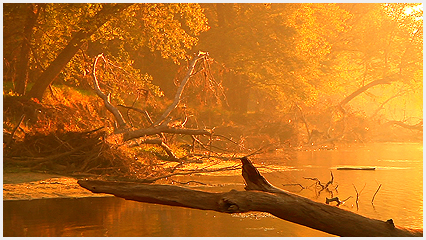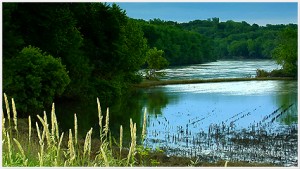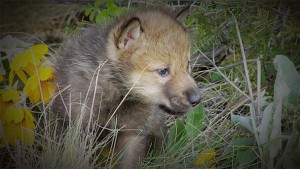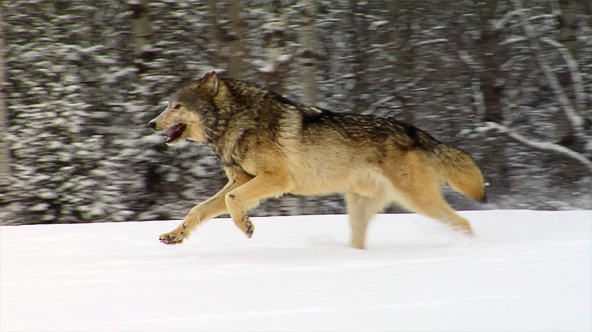The environment is something we should all be conscious and aware of. Climate change is one of the results of what we have been putting into our environment for several generations, but especially the last few decades. If we want our children to grow up in half as pleasant and comfortable a world as we live in, we really should, indeed must, change the way we live and do things. Most of us surely love our children and do want them to live with at least some of the comforts we have enjoyed, and yet most of us go on with our way of life completely ignoring what climate scientists are saying. We go on driving our cars, moving a ton of steel just for one person to get from A to B, we waste fantastic amounts of electricity which is generated with fossil fuels, we waste fresh water which the world of agriculture soon will not have enough of, and we go on flying abroad at every opportunity regardless of the effect on our atmosphere. If everybody else continues to destroy the environment, I alone can not make a difference. So I continue to abuse and pollute the environment and my grandchildren can suffer the consequences. What can I do? Well, actually, a growing number of people are changing their lifestyles in order to reduce the need for transportation and electricity and water consumption, and to reduce the amount of plastic waste constantly thrown into landfill sites. What are they doing?
- Finding local employment
- Cycling to work and to market
- Growing their own food
- Buying local produce
- Building local communities
- Recycling as much as possible, including water
- Rejecting plastic packaging
- Making compost
Get Local
Finding local employment is more easily said than done, for sure, but as local communities develop and get stronger there is and will be more for everyone to do within the community and less necessity for a salary high enough to pay for new clothes and social evenings and transportation costs and restaurant bills and mortgages and the numerous other expenses of twenty first century industrial life. These people’s lives are becoming more centred on their home and their neighbours and neighbourhoods. They are spending more time outdoors, getting more exercise, eating healthier foods and really enjoying their lives. When they go to the local market, some of them take as much as they bring back. They may take fruit or vegetables, socks or gloves. These are not religious cults living in isolation from the world outside but people who want to live in a sustainable way and do not want to be responsible for destroying the world that their children and their children’s children will live in. So, getting back to the earlier question, what can we do?
Things First
Perhaps the best way to begin is by getting out into your local community, getting to know the people in it and then, most importantly, leading by example. Find out about permaculture and start practicing it in your garden. Grow some food in it and share that food with neighbours. Buy as much local produce as you can, and go everywhere within reason by bicycle. You will very soon start to save significant amounts of money, on food and fuel at least. If you live in a decent climate, like California or Australia, get a trampoline and invite friends and neighbours to join in the fun and lose some of the weight they put on with that processed and packaged junk food diet. As inflation gets higher and higher during the next few years it will become easier and easier to persuade people to localise and become self sufficient. The simultaneous effects of climate change, which are already affecting many people in many places, will only help to encourage people to abandon the consumer’s way of life that the Wall Street bankers have made so much money from and exploited so many with. Living off the land as our ancestors did will eventually be the norm once again, as the amount of energy we have taken from fossil fuels can not be replaced by the technology we have developed with that energy. So why not be one of those happy hippies leading the way and make a change in our life?
This article was written by Sarah Hickens for Trampoline Warehouse. Trampoline Warehouse is dedicated to providing best trampolines Australia products to customers at the lowest prices possible. Sarah is a keen blogger and enjoys writing on a wide range of topics








When Congress Plays God, Wolves Lose
The Endangered Species list has always been monitored and managed by an apolitical scientific group. This changed for the first time in history in April 2011 when the United States Congress removed the wolf from the Endangered Species list. The proposal to declare the wolf as not at risk was included in a section of the infamous budget-balancing act, which has made more than a few people scratch their heads: what do endangered species have to do with sound financial planning? The deed was done by Senators from Idaho and Montana where commercial hunting is popular. Coincidentally, the Montana Senator is up for re-election.
The Endangered Species Act of 1973 was made into law to protect species from extinction because of “…economic growth and development untempered by adequate concern and conservation.” Yet that is exactly what wolves have fallen prey to. The decision to remove them from the Endangered Species list (or rather, to allow commercial hunting of them) was not made by scientists, wildlife experts, or conservationists, it was made by politicians, who were very conveniently benefited by the decision. Furthermore, it was not openly proposed and discussed, but rather hidden away in a bill so important that those involved would have no choice but to pass it. This is clearly a case of political maneuvering. Everyone has seen the movie where, to save the sinking ship, the captain must seal off the leaking rooms, dooming the men inside. To do a greater good, a wrong must be done as well. The only reason it was done in this situation is that Senator Jon Tester and Representative Mike Simpson forced it to be so. If they had legitimate evidence of the species’ safety from nature and wildlife experts, they could have presented the unprecedented idea to Congress (remember that Congress has never, in 235 years, taken authority to remove an animal from protected capacity) in its own bill, instead of squirreling it away in the Congressional Budget Act which had to be passed immediately to avoid a government shutdown.
Furthermore, it was not openly proposed and discussed, but rather hidden away in a bill so important that those involved would have no choice but to pass it. This is clearly a case of political maneuvering. Everyone has seen the movie where, to save the sinking ship, the captain must seal off the leaking rooms, dooming the men inside. To do a greater good, a wrong must be done as well. The only reason it was done in this situation is that Senator Jon Tester and Representative Mike Simpson forced it to be so. If they had legitimate evidence of the species’ safety from nature and wildlife experts, they could have presented the unprecedented idea to Congress (remember that Congress has never, in 235 years, taken authority to remove an animal from protected capacity) in its own bill, instead of squirreling it away in the Congressional Budget Act which had to be passed immediately to avoid a government shutdown.
When politics are allowed to influence the treatment of ecosystems, the natural world is in serious danger. The good of species and life forms is no longer dictated by conservation measures, but by the agenda of individuals. We may as well add the planet to the Endangered Species List, although it would probably just be removed by some Senator looking for votes.
